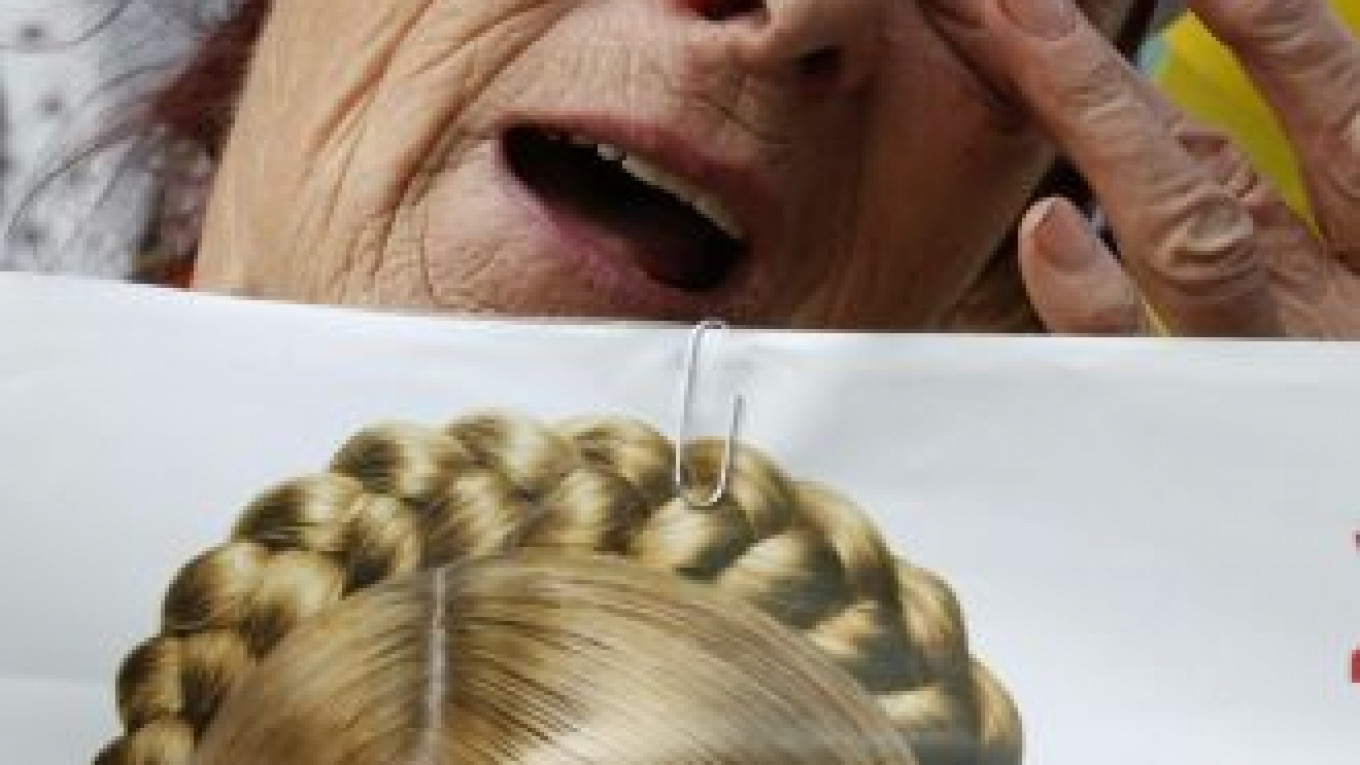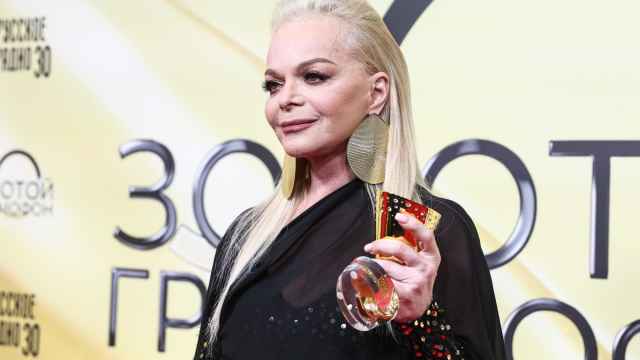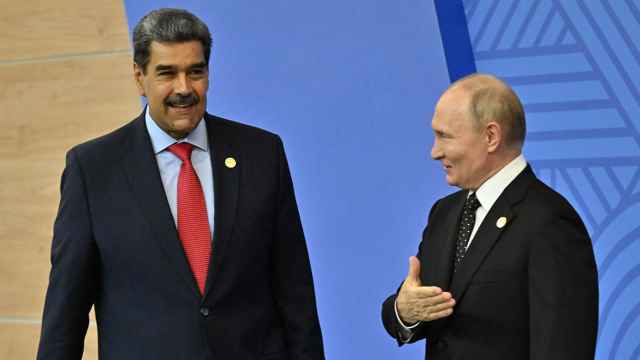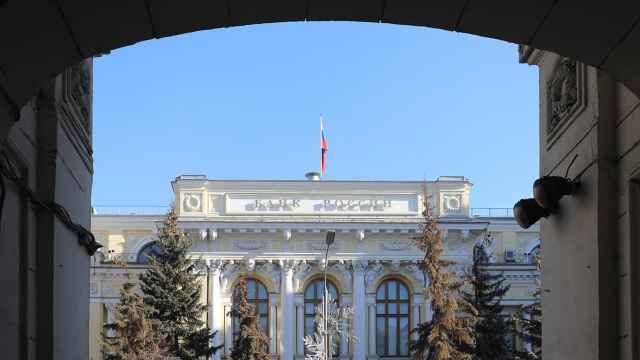KIEV, Ukraine — Elegant and well-groomed, sometimes in shimmering white, sometimes in gray, she turns to her supporters squeezed into the few available public seats and calls out a formal salute: "Glory to Ukraine!"
"Glory to our heroes!" they reply, and the peasant-braided Yulia Tymoshenko takes her seat on the accused's bench of a Kiev courtroom. The Tymoshenko trial — or "show" as her critics might say — gets under way.
Tymoshenko, a former prime minister, will not rise from her seat again until she leaves the court where she is on trial for abuse of office. She will certainly not stand out of respect for the judge whom she disdains as a "puppet" in the pay of darker forces.
There are times when the tiny downtown courtroom seems too small a theater to handle the Tymoshenko phenomenon.
The fire and resolve that made her the field marshal of Ukraine's 2004 Orange Revolution, which overturned a rigged presidential election, appear undiminished.
But she is thinner in the face now and more tired in the eyes. Her lawyers say she is sick. Three weeks of overnight detention in Kiev's Lukyanivska prison are telling.
But it is hard to know who to feel more sorry for: Tymoshenko, 50, or the boyish, bespectacled Judge Rodion Kireyev who has been her target from the first day.
"There's a joke about a monkey sitting on a branch holding a hand grenade. They are cutting the branch from under him. 'My' judge is the monkey with the grenade on the branch with the saw in his own hands," she wrote in a tweet from the courtroom.
At times, her performance obscures the seriousness of the charge — using her powers as prime minister to push through a deal with Russia in 2009 that, her critics say, saddled the country with too high a price for gas. If convicted, she could be sentenced to up to 10 years in jail.
She denies the charge. The trial, she says, is a vendetta conducted by the clan of President Viktor Yanukovych, her foe and the only person who merits more invective from her than Judge Kireyev.
Many observers see the trial as a miscalculation by the Yanukovych administration, a poorly thought-out move aimed at ending Tymoshenko as a political force during the summer lull before the start of a difficult new political season.
Since being narrowly defeated by Yanukovych in a runoff for the presidency in February 2010, Tymoshenko has failed to rally a united opposition around her. She was in the doldrums.
But the trial thrust her back into the headlines and plays to her strong suit, an appetite for political theater.
She thrives on the fray, has inexhaustible energy and holds a burning conviction that she alone can save Ukraine from what she describes as the "criminal" leadership of Yanukovych.
She has already pulled off a notable success. The United States and the European Union, whose support Ukraine needs for economic recovery, have expressed concern about what looks like a politically driven trial. They would like her to be released from detention.
Even Russia, not always on the same side as the West over Ukraine, has spoken out against the trial and defended the gas deal. Yanukovych has so far refused to intervene.
Playing the victim is what Tymoshenko does best. When the judge placed her in police custody on Aug. 5, she declared: "You might as well shoot me now. Give her [the prosecutor] a revolver!" Another time, she expressed fears for her own safety in prison but promised her supporters not to end her own life.
Those "millions" who had invoked her name in prayers for her children had stiffened her readiness to serve Ukraine. "This is my DNA," she wrote in a "Letter from Prison."
This all plays well with the faithful, many of whom revere Tymoshenko and know her only as "Vona," or "She."
Her right-hand man, Olexander Turchinov, slaps down any suggestion that she might have deliberately provoked her own detention for political purposes.
"People who say that have never spent every day in a police detention cell. I'd like to take them on a tour there to end this [talk] once and for all," he said.
Political analyst Mikhail Pogrebinsky said the trial had only resurrected her as a political force. "Those who advised the president failed to correctly calculate the consequences of this affair. It is a serious mistake," he said.
"Anyone will tell you that Tymoshenko is now in her element. She's a showman who is reaping the maximum PR from this spectacle. … She is certain that she can stimulate a revolutionary mood in the country," Pogrebinsky said. "Who would write about Tymoshenko every day if it were not for this trial?"
Hundreds of her supporters brandishing flags adorned with the red heart symbol of her Batkivshchyna party spend days and nights in tents in a vigil outside the courthouse. The area reverberates to choruses of "Yulia! Yulia" as a motorized police escort sweeps her to and from court.
But the numbers involved are small compared with the protests of 2004, and nobody except Tymoshenko's most ardent supporters predicts another Orange upheaval.
Despite her huge popularity in some parts of the country, many of the young and middle-class people who rallied to her in 2004 are not prepared to turn out for her now.
"I think we definitely need a change of the present government, but I am not in favor of Yulia either. My friends think the same," said Tetyana, who runs a general food kiosk in an underpass near the courthouse.
So where does she go from here? And what is her game plan? Despite everything, serious issues are at stake.
Repercussions from the trial could influence Ukraine's policy directions in the short term at least, including relations with Russia and steps toward integration with the EU.
Tymoshenko may believe that, whatever the outcome, Yanukovych's credibility will be dented. Many commentators agree he faces a public relations defeat in the long run.
If she is jailed and then released under a pardon — a possible outcome — she will play that for all it is worth.
She spent several weeks in prison under former President Leonid Kuchma in 2001 — and emerged politically stronger.
She may be hoping to rally a united opposition around her and weaken the stranglehold that Yanukovych's Party of the Regions has in parliament before next year's election.
Leaders from smaller opposition parties have attended hearings and world heavyweight boxing champion Vitaly Klitschko, who heads the Udar party, broke off training in Austria and returned to Kiev to show solidarity with Tymoshenko.
But one-time presidential candidate Arseny Yatseniuk, who heads the Front of Changes party, ruled out any merger of opposition parties just now, although he saw the possibility of a parliamentary alliance among opposition forces.
A Message from The Moscow Times:
Dear readers,
We are facing unprecedented challenges. Russia's Prosecutor General's Office has designated The Moscow Times as an "undesirable" organization, criminalizing our work and putting our staff at risk of prosecution. This follows our earlier unjust labeling as a "foreign agent."
These actions are direct attempts to silence independent journalism in Russia. The authorities claim our work "discredits the decisions of the Russian leadership." We see things differently: we strive to provide accurate, unbiased reporting on Russia.
We, the journalists of The Moscow Times, refuse to be silenced. But to continue our work, we need your help.
Your support, no matter how small, makes a world of difference. If you can, please support us monthly starting from just $2. It's quick to set up, and every contribution makes a significant impact.
By supporting The Moscow Times, you're defending open, independent journalism in the face of repression. Thank you for standing with us.
Remind me later.






